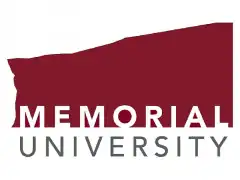Bachelor of Science - Computer Science (Visual Computing and Games)
- 4 years
- Duration
- 22,500 CAD/year
- Price
- Rolling admission
- Start
- Rolling admission
- Deadline
- Bachelor
- Degree
- Campus
- Format
- St. John's / Canada
- Location
Program description
The visual computing and games major focuses on ways to use computers to simulate human visual processing power for tasks such as object recognition and to create visual content such as games and movies. Computer games also provide an excellent chance for computer scientists to understand and apply core concepts of interactive experience design and visual content development.
Computer science is concerned with the theoretical basis of information and computing, as well as the practical strategies for implementing and applying them.
Computers have an impact on almost every subject, whether practical, theoretical, or creative. The growing reliance on computer technology in our daily lives gives numerous opportunities for people interested in developing new applications and systems. A better understanding of computing can help in any career. The technological abilities that a computer science major helps you build will make you indispensable and relevant in any employment.
We provide individual classes as well as comprehensive programmes so that any student, regardless of professional path, can expand their computer skills and interests.
Program structure
Samples of offered courses:
1st Year
- Computer Science - An Introduction
- Introduction to Programming
- Introduction to Logic for Computer Scientists
- Foundations of Computing Systems
- Computing in the 20th Century and Beyond
- Computing at the Movies
- An Introduction to Programming for Scientific Computing
- Basic Computing and Information Technology
2nd Year
- Collaborative and Emergent Behaviour
- Object-Oriented Programming and Human-Computer Interaction
- Data Structures and Algorithms
- Computer Architecture
- Introduction to Operating Systems
- Software Engineering
- Computer Networking
- Introduction to Information Management
- Social Issues and Professional Practice
- Social Web Analysis
- Introduction to Multimedia Programming
- Data Analysis with Scripting Languages
- Programming in C/C++
- Development Tools, Work Flows and Concepts
3rd Year
- Web Programming
- Algorithmic Techniques for Artificial Intelligence
- Introduction to Nature-Inspired Computing
- Introduction to Machine Learning
- Interactive Technologies
- Visual Computing and Applications
- Data Preparation Techniques
- Introduction to Data Mining
- Introduction to Bioinformatics
- Algorithm Design and Analysis
- Introduction to the Theory of Computation
- Industrial Experience
- Vocational Languages
- Programming in the Small
- Introduction to Scientific Computing
- Computational Aspects of Linear Programming
4th Year
- Introduction to Game Programming
- Computer Vision
- 3D Computer Graphics
- Artificial Intelligence in Computer Games
- Data Visualization
- Bioinformatics: Biological Data Analysis
- Structure of Programming Languages
- Compiler Construction
- Special Topics in Programming Languages
- Survey of Software Engineering
- Operating Systems
- Introduction to Microprocessors
- Special Topics in Computer Systems
- Matrix Computations and Applications
- Special Topics in Numerical Computations
- Formal Languages and Computability
- Computational Complexity
Price
- Tuition — 22,500 CAD/year
OTHER FEES (REQUIRED) amounts listed are for two semesters
- Student Services Fee — 100 CAD
- Students' Union — 153 CAD
- Recreation Fee — 143 CAD
- Health Insurance — 524 CAD
Requirements for applicants
- Certificate of (Complete) General Secondary Education
- Minimum grade of 4 in the required subject areas
- English
- Mathematics
- Laboratory Science (Biology, Chemistry, or Physics)
- Social Studies or Modern/Classical Language
- Elective
If you are currently in high school:
- When you apply (early acceptance): Current translated interim transcript and a copy of interim transcript in its original language. Documents can be official or unofficial.
- When you complete your examinations (verified acceptance): Certified translation of your official final Certificate of (Complete) General Secondary Education, including grades and a certified copy of the document in its original language.
If you have completed high school and not attended a post-secondary institution: Certified translation of your official final Certificate of (Complete) General Secondary Education, including grades and a certified copy of the document in its original language.
English language requirements:
- Cambridge Assessment English — A minimum score of 176 in C1 Advanced or C2 Proficiency.
- Canadian Academic English Language (CAEL) Assessment — Minimum band scores between 50 and 60 in each of the four skills tested (reading, writing, listening and speaking), with at least two band scores of 60.
- Duolingo English Test (DET) (until Spring 2024 only) — A minimum score of 115.
- International English Language Testing System (IELTS) — A minimum overall band score of 6.5 on the IELTS Academic or IELTS Indicator, with at least a band 6 in reading and writing. General training results are not acceptable.
- Test of English as a Foreign Language (TOEFL) — A minimum score of 79 on the TOEFL iBT or TOEFL iBT Home Edition, with a minimum score of 20 in reading and writing, and not less than 17 in listening and speaking.
About the university

Memorial University has a unique responsibility to the people of Newfoundland and Labrador as the only university in the province. Memorial University was founded as a tribute to the Newfoundlanders who gave their lives in military duty during globe War I and later conflicts. We take inspiration from their efforts to create a better future for our province, our country, and the globe.
Over 115 different nations are represented among Memorial University's 19000+ students. Programs range from the traditional to the cutting edge, and can be found at any of Memorial's five locations or online. Memorial University's worldwide network of nearly 100,000 successful alums enhances the institution's capacity and reputation for leadership in research, teaching, and public engagement. Learn more about Memorial University in this quick read.
Vision, Mission
- Vision — Memorial University will rise to prominence as one of Canada's and the world's top public institutions of higher learning, and it will honor its commitment to serving the people of Newfoundland and Labrador.
- Mission — When it comes to education, research, scholarship, creative activity, service, and public engagement, Memorial University is committed to being at the forefront of innovation and excellence. International students and scholars are welcomed and supported at Memorial, and the institution's contributions of knowledge and experience are valued on all levels of society.
Campuses
More than 19,400 students and 3,800 teachers and staff from more than 115 countries study, teach, conduct research, create, and participate in activities at our campuses and other locations. You can attend classes at one of Memorial University's several campuses in Newfoundland and Labrador or anywhere in the world; we also offer 475 courses online.
- St. John's campus
- Grenfell Campus
- Marine Institute
- Harlow Campus
- Signal Hill Campus
- Labrador Campus
Read more about Memorial University, Newfoundland and Labrador, Canada





